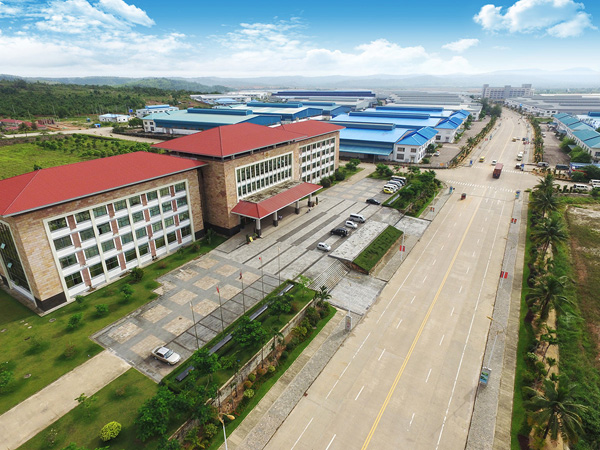Govt-enterprise cooperation boosts Wuxi's reform and opening-up

The Cambodian Sihanoukville Special Economy Zone (SSEZ), led by the Wuxi-based Hodo Group, has become the largest base for foreign-trade exports in Cambodia. [Photo/ssez.com]
Apart from Wu Xie'en, a number of company leaders born in the 1960s have become the backbone of Wuxi's economic growth, including Zhou Haijiang, CEO of Hodo Group and Zhou Jianping, chairman of Heilan Group.
One of Wuxi's achievements in opening-up has been the growth of entrepreneurs. Compared with the factory directors and company leaders at the early stage of reform and opening-up, the new-generation of enterprise heads highlight their global vision and set a fast pace to keep up with the country's economic rise and the trend of economic globalization.
The Cambodian Sihanoukville Special Economy Zone (SSEZ), led by the Hodo Group, has become the largest base for foreign-trade exports in Cambodia, regarded as the "Shenzhen of Cambodia".
The Wuxi government has always encouraged entrepreneurial innovation. The city's successful economic development is partly attributed to the combination of government and companies. Instead of interest-bundling, the Wuxi government has been focusing on long-term interest, supporting entrepreneurs in investment, management and technology innovation.
The local government has also stepped up efforts to boost innovation of public services such as joint stock reform, which has stimulated booming strategic industries, including internet of things and integrated circuits (IC).
Government authorities attach great importance to the key role of entrepreneurs. In 2015, Wuxi experienced slow economic development due to economic restructuring.
Li Xiaomin, Party secretary of Wuxi, at an entrepreneur forum that year, stressing the important role of companies and entrepreneurs in economic development. He vowed to offer accurate support to companies based on industries and classification, to facilitate companies' growth. The government will also stick to creating a business-friendly environment, helping companies with key problems of fund raising and employment.
In terms of the relationship between government and the market, Wuxi's acting mayor Huang Qin noted that the market has been playing a dominant role in economic development and said the government will exert its influence and guide the development of industries, especially the high-tech and strategic industries such as IC.
The 40 years of Wuxi's reform is seen as a history of ideological emancipation, guidance and protection of entrepreneurial innovation. The Wuxi government's efforts have provided a reliable support system for local economic resurgence and common prosperity.
Wuxi has seen successful transformation of its economic structure in recent years, especially in the development of strategic industries, which is largely credited to the government's insistence on the principle of giving the market a crucial role in resource allocation and better exerting the government's influence. The city's experience will become the spiritual wealth of China's reform and opening-up policy.



